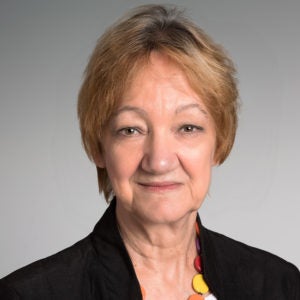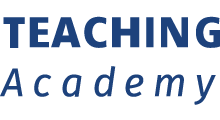
Prof Diana Laurillard
Laurillard is Professor of Learning with Digital Technologies, at University College London (UCL) Knowledge Lab, Institute of Education, United Kingdom. Prior to her appointment at the UCL Institute of Education, she was Head of the e-Learning Strategy Unit at the UK Government Department for Education and Skills (2002-5), and served as Pro-Vice Chancellor for learning technologies and teaching at The Open University (1995-2002).
Diana served as the President of the Association for Learning Technology (2014-15), and was a founding member of the Visiting Committee on IT at Harvard University, and of the Centre for Educational Neuroscience (University of London). Formerly on the Boards of the UNESCO Institute for IT in Education, the Fern Universitet in Germany, and the Observatory for Borderless Higher Education, Diana is now on the Board of the Learning Foundation, and the Education Advisory Board for Climate KIC (Knowledge and Innovation Community).
At the Centre for Global HE at UCL-IOE, Diana is currently running a project on the Transformational Potential of MOOCs. At the RELIEF Centre (Refugees, Education, Learning, IT, and Entrepreneurship for the Future), she is working on a project on Future Education. Diana is also developing the Learning Designer and Course Resources Appraisal Modeller tools for teachers, as well as running a series of professional development MOOCs on Blended Learning Essentials for teachers in Vocational Education via FutureLearn.
Internationally, Diana is collaborating with Beijing Normal University’s Advanced Innovation Centre for the Future of Education, on the Building teacher community knowledge of blended learning project to engage teachers to develop blended learning for new pedagogies. In Singapore, Diana is collaborating with the Learning Sciences Lab, National Institute of Education, Singapore, on the project ‘Translational specifications of neural-informed game-based interventions for mathematical cognitive development of low-progress learners’.
Some of Diana’s recent publications are in the journals Research on Learning Technology, Australasian Journal of Educational Technology, Learning: Research and Practice and the Journal of Computer Assisted Learning. Her most recent book is Teaching as a design science: Building pedagogical patterns for learning and technology (2012).
PUBLIC LECTURE:
“Future of Higher Education in the Digital World”
The digital world is creating both threats and opportunities for the future of higher education. This lecture analyses both, with the intention of positioning higher education as an active player in using the opportunities to minimize the threats.
There are threats to academic values such as democracy, independent critical thinking, inclusivity, research-informed decision-making, openness and tolerance. Disruptive technologies are endemic now in all our social and economic systems, but are unregulated, and poorly understood in terms of their potential by both the originators, and their target users.
There are also threats to the independence and distinctiveness of universities as a force for good in the nation state and the global economy. The rise of private providers has long been predicted, but has so far made little impact. That may not last, because the stakeholders of HE change faster now than our HE systems are capable of doing.
There are also extremely exciting opportunities for HE in our digital world. Digital inventions, the tools, resources and services now available to us, create the most exciting opportunity for education since the invention of writing. They change fundamentally the way we and our students interact with each other.
The aims and purpose of HE were defined by the UK Dearing Committee 20 years ago, and they are still current: to contribute to individuals, the development of knowledge, the economy, and an inclusive society. I will argue that digital opportunities serve all these:
enabling the individual to attain their learning potential via personalized learning, building knowledge more rapidly by reducing the gap between research and teaching, helping us adapt to the changing demands of our economies via greater productivity, achieving genuinely inclusive economic growth via more flexible access to HE.
There are few enterprises more important that education in building a better world, and digital technology is the means by which we do this on the large scale, with a broad and inclusive reach.
The lecture will make the case that there is a positive role for HE in the digital world, IF the global HE sector seeks to understand the threats, AND seizes the opportunities to steer digital impacts towards beneficial results for the many not the few.
WORKSHOP:
“Digital Methods of Assessment for Learning”
The workshop will review the common forms of digital assessment to critique them and offer ways of improving their effectiveness. It will then cover some less common approaches to the role of digital technologies in formative assessment: peer review, and assessment co-design. All forms of digital assessment offer significant improvements in comparison with conventional forms, primarily due to the nature of the feedback they can provide.
To be effective, assessment for learning must always be seen in the context of the overall learning process, and the way it is designed. We will review sample learning designs in terms of the alignment between intended learning outcomes, planned teaching-learning activities, and assessment, distinguishing formative from summative assessment.
The activities will include both small group and individual work, to review, critique, and improve sample designs for digital assessment. Participants will be given access to online learning tools to assist their design and exchange processes, and will be offered a choice of sample designs to work on and experiment with in their own teaching.


